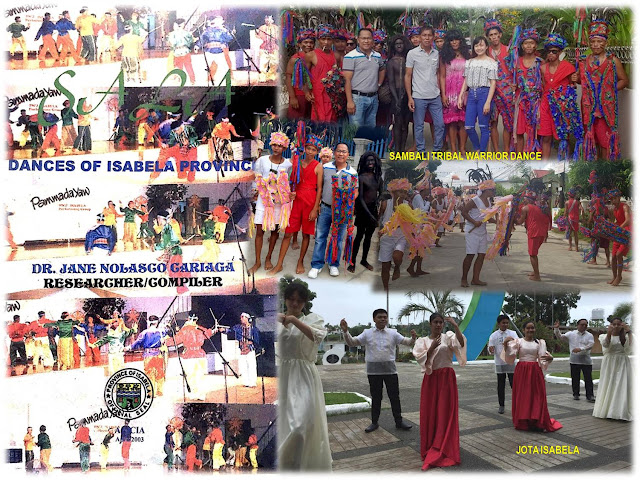51. PNU INDIGENOUS MUSIC FESTIVAL
PNU INDIGENOUS MUSIC FESTIVAL
Dr. Troy Alexander G.
Miano
27 October 2017
My wife received an invitation through FB Messenger from a
faculty of the Philippine Normal University (PNU) North Luzon Campus, Mr.
Vandolph A. Corpuz, requesting me to render an inspirational message in the
Panagmula Indigenous Music Festival. After seeking permission from my
superiors, I accepted the request. PNU Northern Luzon in Alicia town is known
as the Indigenous Peoples Education Hub and in connection with the celebration
of the 20th Year of the Indigenous Peoples Rights Act (IPRA) and the
7th National Indigenous Peoples Month (October), the music festival
became a reality.
The show, in partnership with the National Commission for
the Culture and the Arts (NCAA), were filled with indigenous rituals which
include the ceremonial opening program by the Cordillera DEEP Scholars and
Gaddang Elder; welcome and Pandawat Ritual Putungan by the Danggayan Cultural
Group; ceremonial expression of commitment where we affixed our hand print; and
festival song conducted by the stage/event director, Mr. John Jerry Francisco.
In my message, I gave emphasis on the promotion, preservation and development
of indigenous music. I also shared the contribution of the Provincial
Government of Isabela (PGI) under administration of Governor Faustino G. Dy III
on the active participation of the IPs in the different Councils and in the
Sangguniang Panlalawigan. I also imparted the PGIs programs and projects for
the Agtas of the Northern Sierra Madre Natural Park and the Dumagats of coastal
Isabela.
I was in awe as I listened to the music, dances, rituals and
revelry which started from the invocation up to the last part of the program.
Eleven groups participated: Southern Isabela Glee Club, West Tabacal Region
National High School Bamboo Ensemble, Kalinga Community Ensemble, Cauayan City
National High School Rondalla Ensemble, Kalinga State Univeristy Performing
Group, Santiago City High School Rondalla Ensemble, Santiago Grand Batalla,
Saniweng Rondalla and the PNU NL Kalibnusan Choral. Twice, I was asked to
perform the Kalingan ritual dance and towards the end of the program, I joined
the “Unity Dance” still in the same Kalingan steps.
In between performances, I browsed the PNU website to know
more the background of the country’s National Center for Teacher Education. On January
21, 1901, the PNU was established as the Philippine Normal School (PNS) by
virtue Act No. 74 of the Philippine Commission as a normal and trade
school. The PNS formally opened on September 1, 1901, as an institution for the
training of teachers. For more than two decades, PNS offered a two-year general
secondary education program. In 1928, it became a junior college offering a
two-year program to graduates of secondary schools. In 1949, PNS was converted
into the Philippine Normal College (PNC) through Republic Act 416, also known
as the PNC Charter, with the four-year Bachelor of Science in Elementary
Education (BSEE) program introduced. Subsequently, other undergraduate programs
ensued; the Bachelor of Science in Education (BSE) with specialization in
Elementary Education; a BSEE major in Home Economics; and a three-year Combined
Home Economics diploma. In 1953, the Graduate School was established. Equipped
with a legal mandate, PNC included the Master of Arts (MA) in Education
curriculum in the academic program. However, the organization of a full-fledged
Graduate School came five years later. In 1970, the Bachelor of Science in
Education curriculum, offering major and minor subjects, was introduced. On
July 1972, by virtue of Republic Act 6515, Doctor of Education (Ed.D) and the Doctor of Philosophy (Ph.D) degrees were
offered. In 1965, PNC established branches in Isabela (Alicia), Negros
Occidental (Cadiz City) and Agusan
del Sur (Prosperidad) by virtue of Republic Act 4242. In 1980, a
fourth campus was born in Quezon
(Lopez) province. On December 26, 1991, by virtue of Republic Act 7168, the
school was elevated to university status. In 2008, it was declared the
country's National Center for Teacher Education by Republic Act 9647.
The Isabela Campus or PNU North Luzon, Hub for Indigenous
Education, is the third regional hub of the University located in the
Municipality of Alicia. RA 4242 also became the legal basis of its creation,
principally authored and sponsored by Isabela Lone District Congressman (1957-1965)
Delfin Albano. On July 26, 1971, the PNC Isabela Campus was established. From
the curricula offering of Bachelor of Elementary Education, new curricular
programs have been added, enrolment has increased, the physical plant has grown
and different services have been established. The campus offers graduate
programs that cater to the needs of teachers in public and private schools not
only in Isabela but in Cagayan Valley region. Today, the campus has
strategically placed itself as one of the most respected teacher training
institutions in Regions II and CAR responsive to the changing demands of the
times and in the process of meeting these societal and national needs, it has
grown and developed into its present status.
It has been decades since I last strummed my first musical
instrument – the bandurria, a Spanish
stringed musical instrument of the lute family with a design derived from the
cittern and guitar. I was a member of the Ateneo Rondalla in the 80s and still
remember some musical pieces like the “Marlboro Country” advertisement song taught
by no less than the master - Mr. Charlie Valencia. Mom bought my first bandurria at Lumanog in Sta. Mesa along
Ramon Magsaysay Boulevard in Quezon City. Three groups performed with this
instrument in the Indigenous Music Festival and I told Dr. Elena A. Navas, the
executive director and provost of the PNU North Luzon Campus, how I wish to
strum the bandurria even for a minute.
She smiled and replied, “Wish granted”.




Mga Komento
Mag-post ng isang Komento